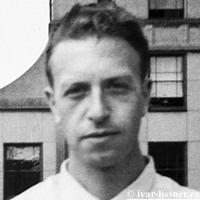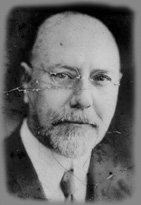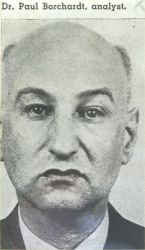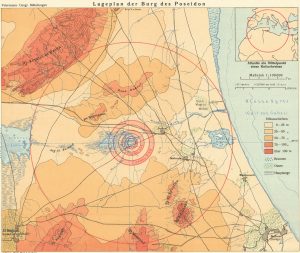spy
Lissner, Ivar Arthur Nicolai (L)
Ivar Arthur Nicolai Lissner (1909-1967) was born in what is now the Latvian city of Livani. After an unhappy sojourn in Russia the family returned to Riga, the Latvian capital and subsequently moved to Berlin. He joined the Nazi Party in 1933 and remained with it in spite of the fact that the Gestapo spent three years trying to prove his father’s Jewish ancestry until they dropped charges in 1940. Lissner had moved to Japan acting as a press attaché, in reality a double-agent for both the Nazis and the Soviets. Eventually, he was accused of being a Soviet spy and imprisoned and tortured but eventually acquitted by a Japanese court and released before the end of the war.
 After the war be developed his career as a journalist in Germany and France. He had authored a number of books before the war and continued writing afterwards. Two of his later books have been translated into English which deal with ancient civilisations, The Living Past [726] and The Silent Past[725]. He supported the idea that Tartessos in Spain had been Atlantis, and extensively cites the work of Adolf Schulten in support of this contention.
After the war be developed his career as a journalist in Germany and France. He had authored a number of books before the war and continued writing afterwards. Two of his later books have been translated into English which deal with ancient civilisations, The Living Past [726] and The Silent Past[725]. He supported the idea that Tartessos in Spain had been Atlantis, and extensively cites the work of Adolf Schulten in support of this contention.
Strath-Gordon, Alexander E.
Alexander E. Strath-Gordon (1873-1952) was born in Scotland and graduated with  the highest honours from the Edinburgh medical School. After a career as a medical officer in the British army he became head of the British passport control service in New York until retirement in 1934. For some time he was head of British intelligence in the United States or in plain language, a spy.
the highest honours from the Edinburgh medical School. After a career as a medical officer in the British army he became head of the British passport control service in New York until retirement in 1934. For some time he was head of British intelligence in the United States or in plain language, a spy.
Christopher Volpe, a landscape artist, is the great-grandson of Strath-Gordon and in a recent blog on his website he described his ancestor as “Mystic, Linguist, Lecturer, Doctor, Spy”(a). In 1904 Strath-Gordon began a medical practice in Seattle, Washington and remained there until 1914. He then served as a medical officer in the British army in France until the end of the war.
Volpe records that in 1906 Strath-Gordon founded the Atlantean Research Society, in East Orange, New Jersey. This date conflicts with the foundation date of 1928 proposed by Frank Joseph[104]. A book published by Strath-Gordon in 1934 confirms the 1906 date on its cover(b) and records him as the founder and life president of the Atlantean Research Society. The same cover shows that in 1907 he addressed the Atlantean Research Society in Seattle. I suggest that this contradiction can be explained if we accept that the Society was originally founded by Strath-Gordon in Seattle in 1906 and that in 1928 he established the “eastern division” of New Jersey.
A further interesting fact is that Strath-Gordon met Edgar Cayce on a number of occasions in the 1920’s(d) prompting speculation that he may have ‘influenced’ some of Cayce’s Atlantis readings, an idea that must appeal to any rationalist.
Strath-Gordon had James Churchward as an associate in the Society, again with the probability that there was a cross-pollination of ideas between them!>Egerton Sykes noted that James Churchward was vice-president of the N.J. branch(e) .<
A rather bizarre reference to Strath-Gordon is to be found in The New Yorker magazine of March 28th 1936 in which he is reported(c) to have predicted the end of the Depression on September 16th that year, based on a study of measurements in a gallery within the Great Pyramid at Giza!
(a) https://christophervolpe.blogspot.ie/2010/09/imagining-atlantis.html
(b) See Archive 3921
(c) https://www.newyorker.com/archive/1936/03/28/1936_03_28_015_TNY_CARDS_000162802
(d) https://groups.google.com/forum/?fromgroups#!topic/alt.legend.atlantis/muQ7l9XDu3E
>(e)Atlantis, Volume 11, No.6, Sept/Nov 1958 <
Borchardt, Theodor Paul
Dr Paul Theodor Borchardt (1886-1957) at the very least could never have claimed to have lived a dull life. He came from a Jewish family but adopted Theosophy, publishing a commentary on Blavatsky’s Isis Unveiled while still in his early  twenties. He joined the German army and served in the Middle East during the First World War, working as a pilot and spy. After that war, he explored Tunisia, which led to his contribution to Atlantology.
twenties. He joined the German army and served in the Middle East during the First World War, working as a pilot and spy. After that war, he explored Tunisia, which led to his contribution to Atlantology.
>Borchardt studied under Professor Siegfried Passarge and when Borchard later proposed that the chotts of northwest Africa held the remains of Plato’s Atlantis, Passarge investigated the claim and expressed some reservations. Passarge was a rabid anti-Semite, but at that time does not appear to have been aware of Borchardt’s ancestry.<
Later, in 1929 he became a professor of military geography in Munich, but, his Jewish background led to his dismissal in 1933 and later in 1938 was sent to the Dachau concentration camp. Intervention by a relative led to his release and emigration to Britain in 1939. MI5 were impressed by his wartime exploits and his anti-Nazi outlook.
However, Borchardt travelled to the United States and quite incredibly was recruited as a German spy by the infamous Kurt Frederick Ludwig who was already under surveillance by the authorities. When the so-called Joe K spy ring was broken up Borchardt was sentenced to 20 years in prison, narrowly avoiding the death penalty. Once again through the influence of friends he got an early release and a pension.
Letters relating to his wartime activities can be read online(c)(d).
Borchardt was convinced that Atlantis had been located in North Africa(a). He particularly favoured an area between the Chott el Jerid and the Gulf of Gabés, off Tunisia. James Bramwell notes[195.115] that Borchardt recorded the location as Ham Mam and that he had deduced that the salt lake, Chott Hammeina, was once called the “Lake of the Atlantes”, formerly known as Lake Tritonis. El Hamma (Al Hammah) is a town 30km west of Gabès.>Sprague de Camp noted [194.191] that Borchardt identified ancient Mt. Atlas with the Ahaggar Mountains rather than the Atlas range in the Maghreb!<
The topography of the region together with the ruins of an ancient city near Gabés that Borchardt discovered along with traces of irrigation canals, as well as a huge concentric feature, convinced Borchardt that he had identified Plato’s Atlantis. He believed that the Pillars of Hercules were not the mountains on either side of the Strait of Gibraltar but instead were actual pillars in a temple of Hercules in the at the Gulf of Gabés near the entrance to the chotts.
It may be worth mentioning that the Maltese archipelago, just north of Tunisia, also had an ancient temple dedicated to Hercules.
Borchardt differentiated between the island of Atlantis and the location of the citadel of Poseidon. He identified similarities between Berber tribal names and the ten kings of Atlantis e.g. Plato refers to the founder of the royal house of Atlantis as Euenor, which is claimed to be echoed in the name of Uenur, the mythical father of all the Berbers.
His views were published in 1927 in a couple of articles[190][191] written in German.
A 1928 newspaper report(b) is also worth a look.
(a) https://atlantisforschung.de/index.php?title=Paul_Borchardt:_Atlantis_in_Tunesien (german)
(b) https://trove.nla.gov.au/ndp/del/article/1230945
(c) http://www.fjexpeditions.com/frameset/borchardt.htm
(d) Paul Theodor Borchardt (1886 – 1957) – Genealogy (geni.com)

